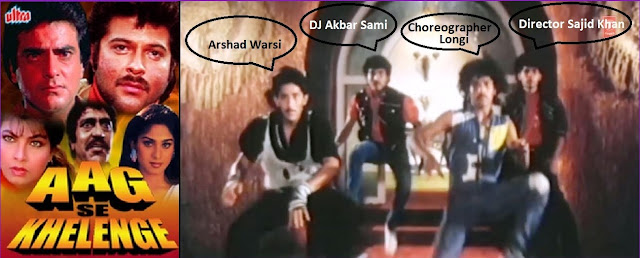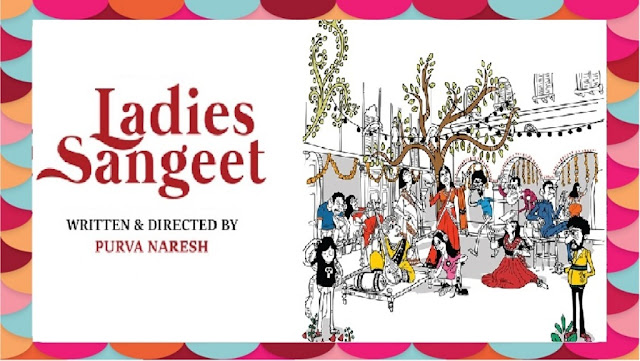Tribute: Shashi Kapoor – by Suhel Johar
Shashi Kapoor - An Underrated And Unsung Hero.
Balbir Raj Kapoor, more popularly known as Shashi
Kapoor, the youngest son of Prithvi Raj Kapoor, who was keeping unwell (due to kidney
problem) for quite a while, passed away on December 04, at the Kokilaben
Dhirubhai Ambani Hospital in Mumbai. He was 79 years old.
Shashi Kapoor was born in Kolkata in 1938. He began
his career early, assisting in his father’s travelling theatre company and
appearing on stage in a production of Shakuntala,
a classic Hindu love story, at the age of six.
Shashi Kapoor acted in plays, directed and produced
by his father Prithviraj Kapoor, while traveling with Prithvi Theatres. He
started acting in films as a child in the late 1940's under the name of
Shashiraj. His best-known performances as a child actor were in Aag (1948) and Awaara (1951), where he played the younger version of the
characters played by his older brother Raj Kapoor and in Sangram (1950), where he played the younger version of Ashok Kumar.
He worked in four Hindi films as a child artist from 1948 to 1954.
When he grew up Shashi Kapoor got an opportunity to
work as an assistant director in the film Post
Box 999, the debut film of Sunil Dutt, and worked as an assistant director
to Ravindra Dave in Guest House
(1959), which was followed by movies such as Dulha Dulhan and Shriman
Satyawadi, where Raj Kapoor was the lead hero.
He debuted as a leading man in Dharmputra in 1961. At a time when Shammi Kapoor came and
sensationally took over Bollywood, and his brand of cinema was very much at its
peak, Shashi Kapoor, had competition right in his family. But for this suave,
understated actor with his own charismatic aura, carving a tangible niche for
himself wasn’t much of a task.
The women swooned, the critics applauded and the men
emulated, as the actor consolidated his position as an actor with much aplomb.
Undoubtedly, it’s a tremendous legacy that he’s left
behind, with movies, performances and dilaogues to immortalise him until time
immemorial.
Coming from the biggest film lineage there is in the
country, the man had not just his family but such terrific star powers as Dharmendra
and Manoj Kumar (incidentally the two of them were his closest pals during the
days he was struggling to gain a foothold
in the industry) to compete against. Even whilst he created a legendary
on-screen bonhomie with Amitabh Bachchan, Shashi Kapoor managed to charm his
way through his colleague’s throttle to unparalleled superstardom. A feat no
mean in itself, if one may add.
After Dharmputra
Shashi went on to appear in 116 Hindi films, including 61 films as the solo
lead hero and 55 multi star-cast films, 21 films as supporting actor and
special appearances in 7 films. He was a very popular actor in Bollywood during
the 60s, 70s and until the mid-80s.
The list of his popular and critically acclaimed
films includes films like Waqt, Jab Jab
Phool Khile, Paap Aur Punya, Anari, Aamne Samne, Haseena Maan Jayegi, Ek
Shriman Ek Shrimati, Mr. Romeo, Sharmeelee , Aa Gale Lag Jaa, Pyar Ka Mausam,
Abhinetri, Pyaar Kiye Jaa, Jaanwar Aur Insaan, Kabhi Kabhie, Deewar, Trishul, Silsila,
Baseraa, Doosara Aadmi, Suhana Safar,
Fakira, Satyam Shivam Sundaram, Chor Machaye Shor and New Delhi Times, His last and most recent film appearances were in
Jinnah (1998), a biographical film
of Mohammed Ali Jinnah in which he was the narrator and another Merchant Ivory
production titled Side Streets
(1998). He retired from the film industry by late 1990s and had not appeared in
any film ever since.
Shashi Kapoor, was the first Indian Hollywood
Crossover star. A major star at home, Kapoor became the first mainstream Indian
actor to work in Hollywood and international cinema. His English-language film
career began with Merchant-Ivory's debut production, 1963's The Householder. Kapoor's international
profile was further raised with the banner's breakthrough 1983 title Heat and Dust, in which he co-starred
with Greta Scacchi and Julie Christie. One of Kapoor's later international
films was 1988's British colonial adventure The Deceivers, co-starring Pierce Brosnan, directed by Nicholas
Meyer (Star Trek).
Kapoor's international sensibilities were influenced
by his late wife, British actress Jennifer Kendall. They got married in 1958.
Kendall's parents ran the traveling Shakespearana theater group in India, which
inspired the 1965 Merchant-Ivory production Shakespeare Wallah. The film starred Kapoor and members of the
Kendall family with an uncredited part for Jennifer.
He also starred in other British and American films
such as Pretty Polly ( Matter Of Innocence (1967)) opposite
Hayley Mills, Siddhartha (1972), Sammy and Rosie Get Laid (1987) The Householder, Bombay Talkie and In Custody
(1994).
At the peak of his career in the 1970s and 1980s,
Kapoor used his earnings to fund his banner Filmvalas which backed offbeat and
often riskier fare, such as Junoon, 36 Chowringee Lane (both starring his wife) Vijeta,
Utsav and Kalyug. In
1991 he produced and directed a fantasy film titled Ajooba which had his frequent co-star Amitabh Bachchan and nephew
Rishi Kapoor in the lead.
Shashi was honoured with the coveted Padma Bhushan
by the Indian government in 2011. In 2015, he became the third in his family to
be honoured with the Dadasaheb Phalke Award, after his father and late brother,
legendary actor-director Raj Kapoor.
The legendary actor was married to late English
actress Jennifer Kendal, with whom he established Prithvi Theatre in 1978. He’s
survived by three children, Kunal Kapoor, Sanjana Kapoor and Karan Kapoor.
With his demise, Shashi has truly left behind a
legacy worth commemoration, one worth celebrating and one that’s inspired many
an aspiring generation and shall keep doing so, for a long time to come.
Tributes poured in from prime minister, finance
minister, home minister and several other senior political leaders and film
personalities.









Comments
Post a Comment